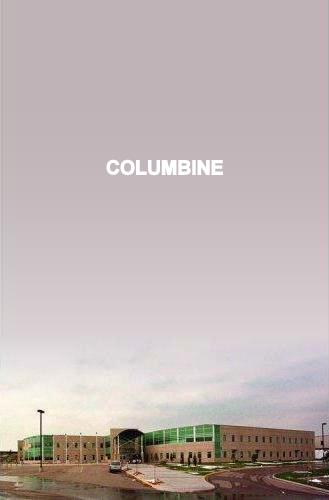Columbine
01/09/09 10:27
Here is the book I mentioned in class. I'll post a selection from it later here, on this page. It's a very interesting read, and makes fantastic points about the media's role in creating "Columbine." (The book also has a fantastic cover.)

On amazon.com
A review from the New York Times Review of Books and a section from that review:
But the most subtle distortions of the media echo chamber, it seems, did not concern logistics. They concerned motive. As early as two hours into the live coverage of Columbine, news stations began to report that something called the Trench Coat Mafia, a group of disgruntled goths, was possibly behind the attack. Many of the students, watching this coverage on classroom televisions while still trapped inside the building, began to repeat this information to reporters on the outside once they’d escaped. (And it made sense: the killers were wearing trench coats.) And so a loop began, reinforced by four eyewitnesses who said the gunmen were deliberately targeting their victims. One offered such a precise level of detail — the killers were taking aim at “anyone of color, wearing a white hat or playing a sport” — that it proved irresistible, both to students and to members of the media, who (Cullen speculates) were out of their element in this teenage universe, and therefore willing to repeat this rumor whether their “witnesses” had seen the gunmen or not. “Reporters,” the author points out, “would not make that mistake at a car wreck.”
Of course, tragedies often lend themselves to myths, so as to meet the needs of the day. For weeks after Sept. 11, the lovely legend persisted that the Rev. Mychal Judge, a New York Fire Department chaplain, died from falling debris when he took off his helmet to give last rites to a firefighter. As I wrote sometime later in New York magazine, that’s not how he died. But people had a stake in that belief. And Columbine generated a similar tale of spiritual martyrdom. A boy who witnessed the murders in the school library told people afterward that a slain student, a fellow evangelical named Cassie Bernall, was asked by one of the killers if she believed in God. “Yes, I believe in God,” he said she replied. Two other witnesses, both sitting near Cassie, heard no such thing, and Cullen goes on to say that a 911 tape from that day “proved conclusively” that she hadn’t uttered these words. It didn’t matter. The story caught the imagination of the evangelical world, and Cassie’s mother, Misty Bernall, wrote a book, “She Said Yes,” that has since sold more than one million copies.

On amazon.com
A review from the New York Times Review of Books and a section from that review:
But the most subtle distortions of the media echo chamber, it seems, did not concern logistics. They concerned motive. As early as two hours into the live coverage of Columbine, news stations began to report that something called the Trench Coat Mafia, a group of disgruntled goths, was possibly behind the attack. Many of the students, watching this coverage on classroom televisions while still trapped inside the building, began to repeat this information to reporters on the outside once they’d escaped. (And it made sense: the killers were wearing trench coats.) And so a loop began, reinforced by four eyewitnesses who said the gunmen were deliberately targeting their victims. One offered such a precise level of detail — the killers were taking aim at “anyone of color, wearing a white hat or playing a sport” — that it proved irresistible, both to students and to members of the media, who (Cullen speculates) were out of their element in this teenage universe, and therefore willing to repeat this rumor whether their “witnesses” had seen the gunmen or not. “Reporters,” the author points out, “would not make that mistake at a car wreck.”
Of course, tragedies often lend themselves to myths, so as to meet the needs of the day. For weeks after Sept. 11, the lovely legend persisted that the Rev. Mychal Judge, a New York Fire Department chaplain, died from falling debris when he took off his helmet to give last rites to a firefighter. As I wrote sometime later in New York magazine, that’s not how he died. But people had a stake in that belief. And Columbine generated a similar tale of spiritual martyrdom. A boy who witnessed the murders in the school library told people afterward that a slain student, a fellow evangelical named Cassie Bernall, was asked by one of the killers if she believed in God. “Yes, I believe in God,” he said she replied. Two other witnesses, both sitting near Cassie, heard no such thing, and Cullen goes on to say that a 911 tape from that day “proved conclusively” that she hadn’t uttered these words. It didn’t matter. The story caught the imagination of the evangelical world, and Cassie’s mother, Misty Bernall, wrote a book, “She Said Yes,” that has since sold more than one million copies.